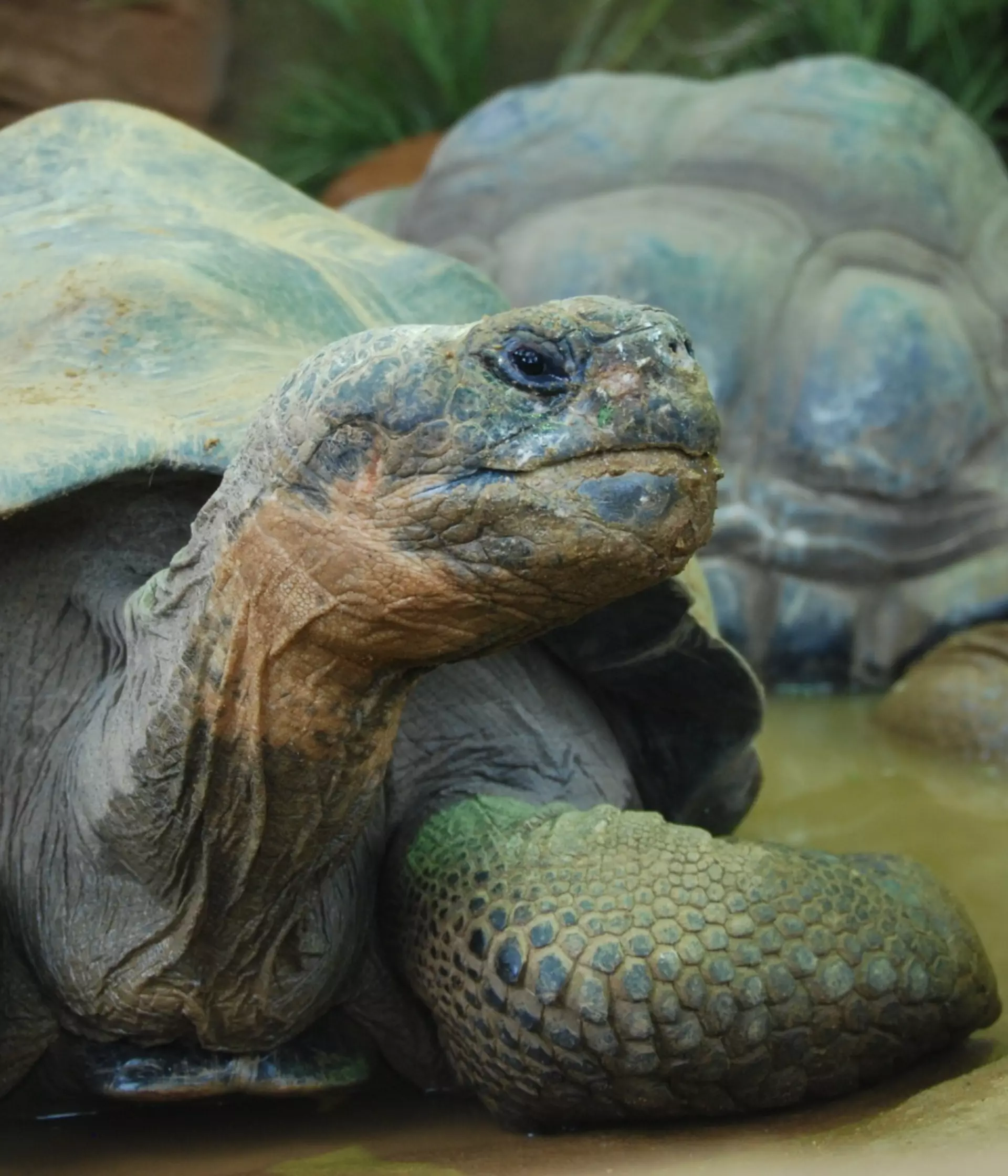Galapagos tortoise facts
The largest living tortoise, these reptiles were once so ubiquitous that Spanish explorers names the Galapagos islands after them – Galapagos meant tortoise in old Spanish. They can survive without food or water for over a year, able to store large quantities of liquid when a water source is found. Although they are land dwelling they spend a lot of their time bathing in shallow pools.
These colossal reptiles hatch from eggs the size of a Ping-Pong ball. Although most assume it is the shell of the tortoise that makes them so heavy, it is in fact relatively light with vast fat stores making up the bulk of their weight. There were once over 250,000 Galapagos tortoises across the islands, but today there are just 17,000.
Galapagos tortoise lifespan
Galapagos tortoises can live up to 177 years old, meaning Galapagos tortoises some alive today would have around since before the American civil war.
What do Galapagos tortoises eat?
A range of vegetation including grasses, cactus and leaves. They have been known to eat unusual foods that are dangerous to humans such as fruits from the manzanillo tree. On occasion, in a bid for extra protein, these herbivores have been documented eating small birds.
Galapagos tortoise threats
Introduced species such as feral dogs, cats and rats prey on young tortoises before they have a chance to fully develop their protective shell. Wild grazing animals such as pigs and goats also strip areas of vegetation making nests more vulnerable.
